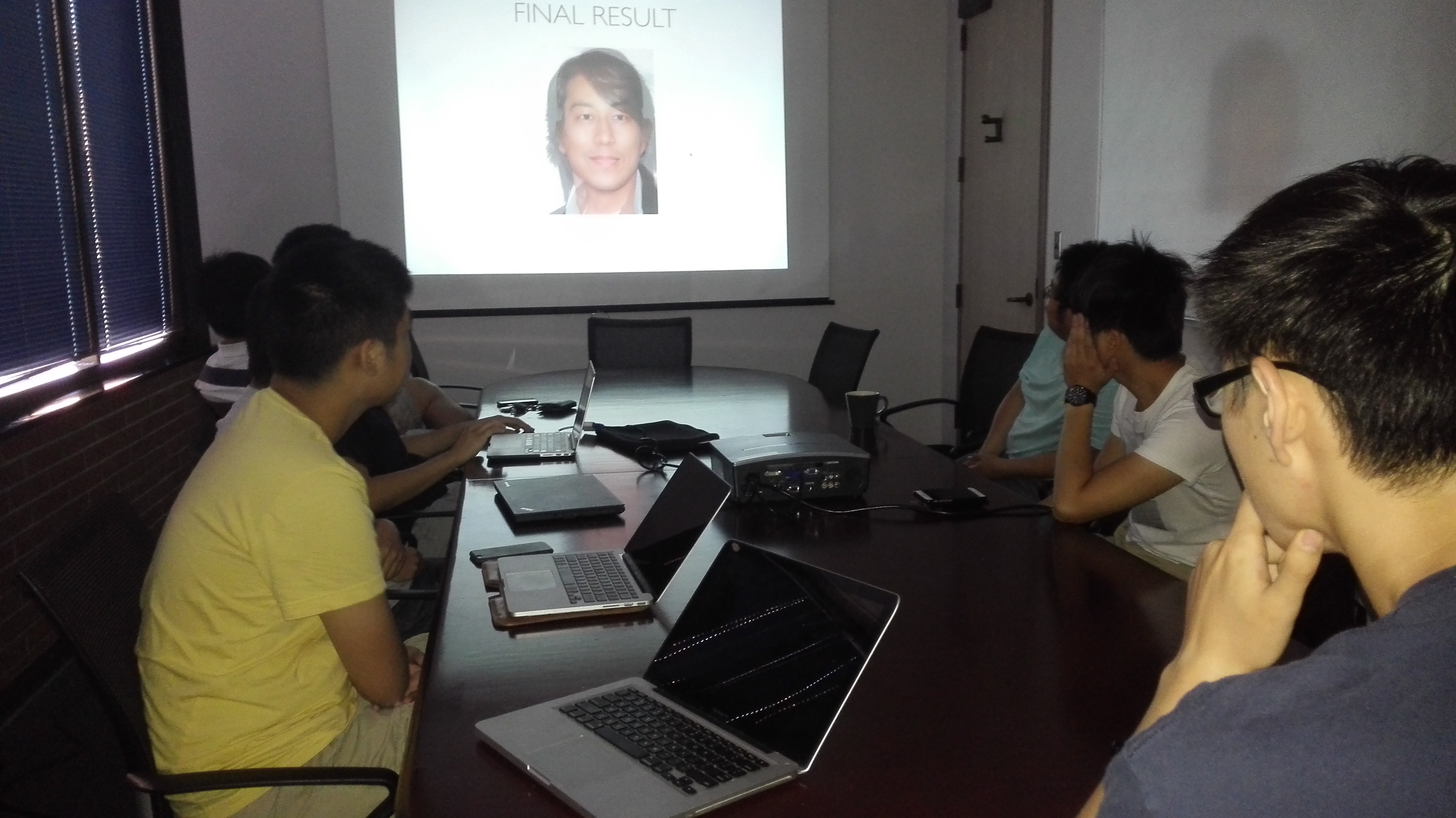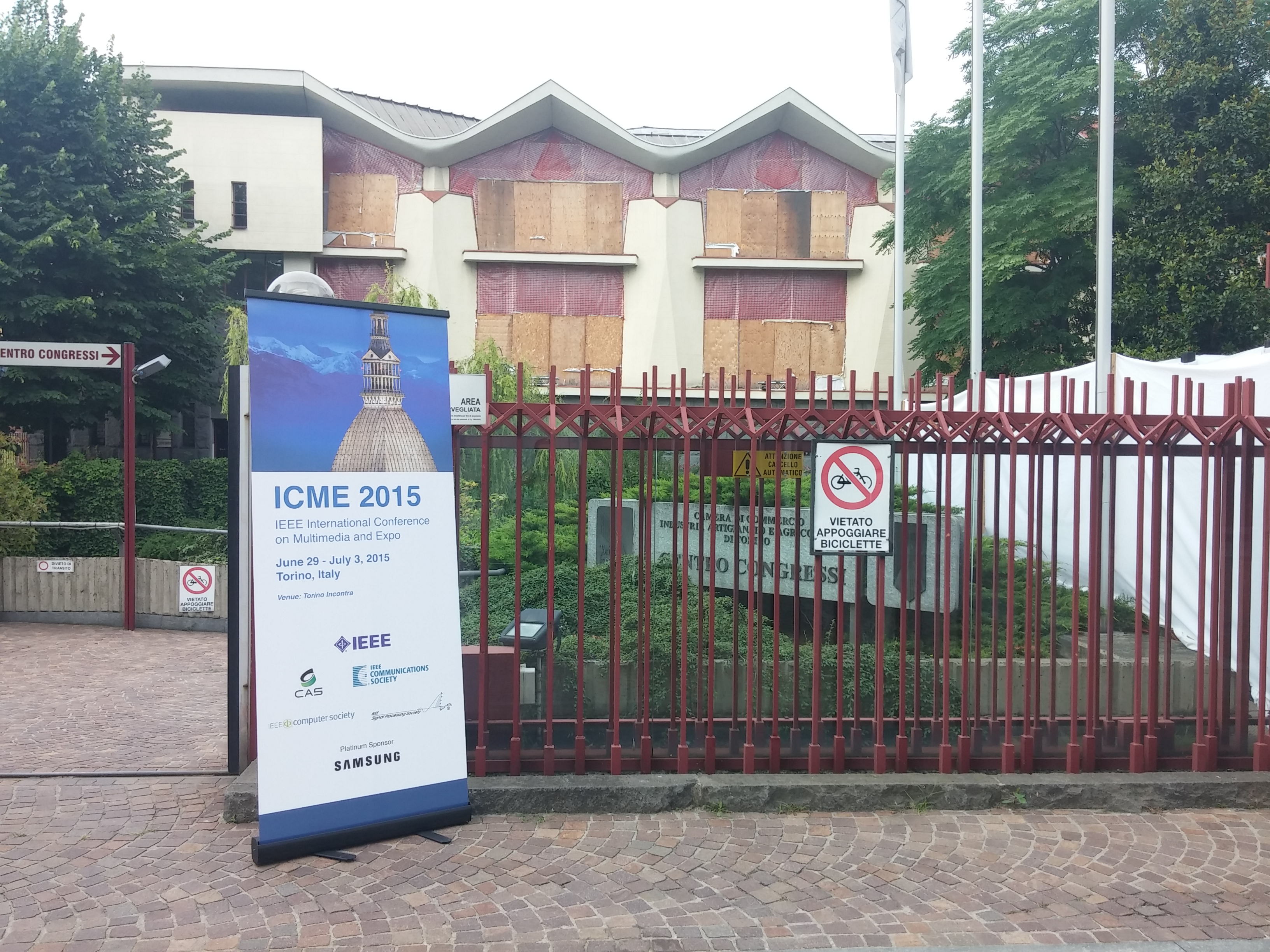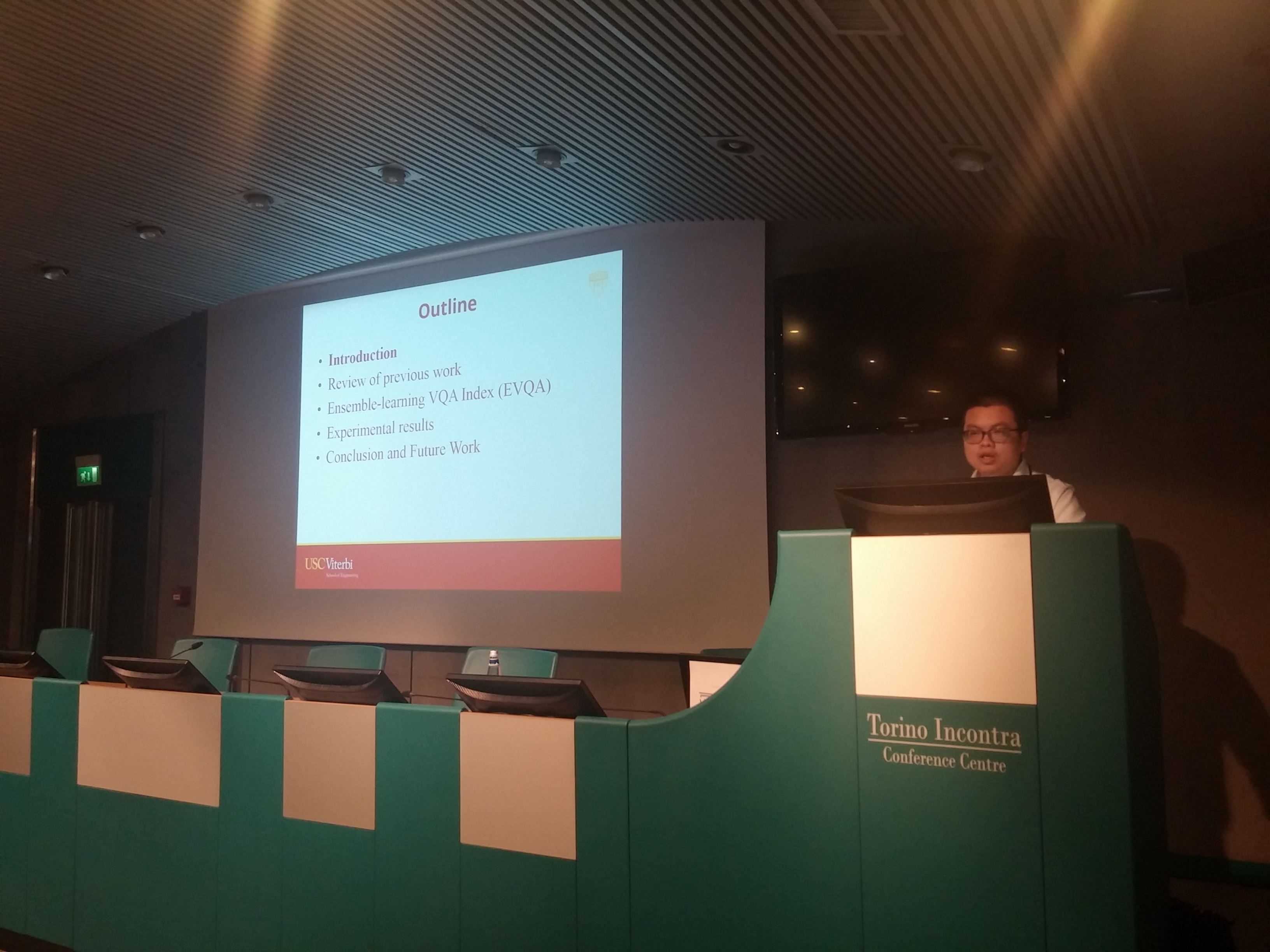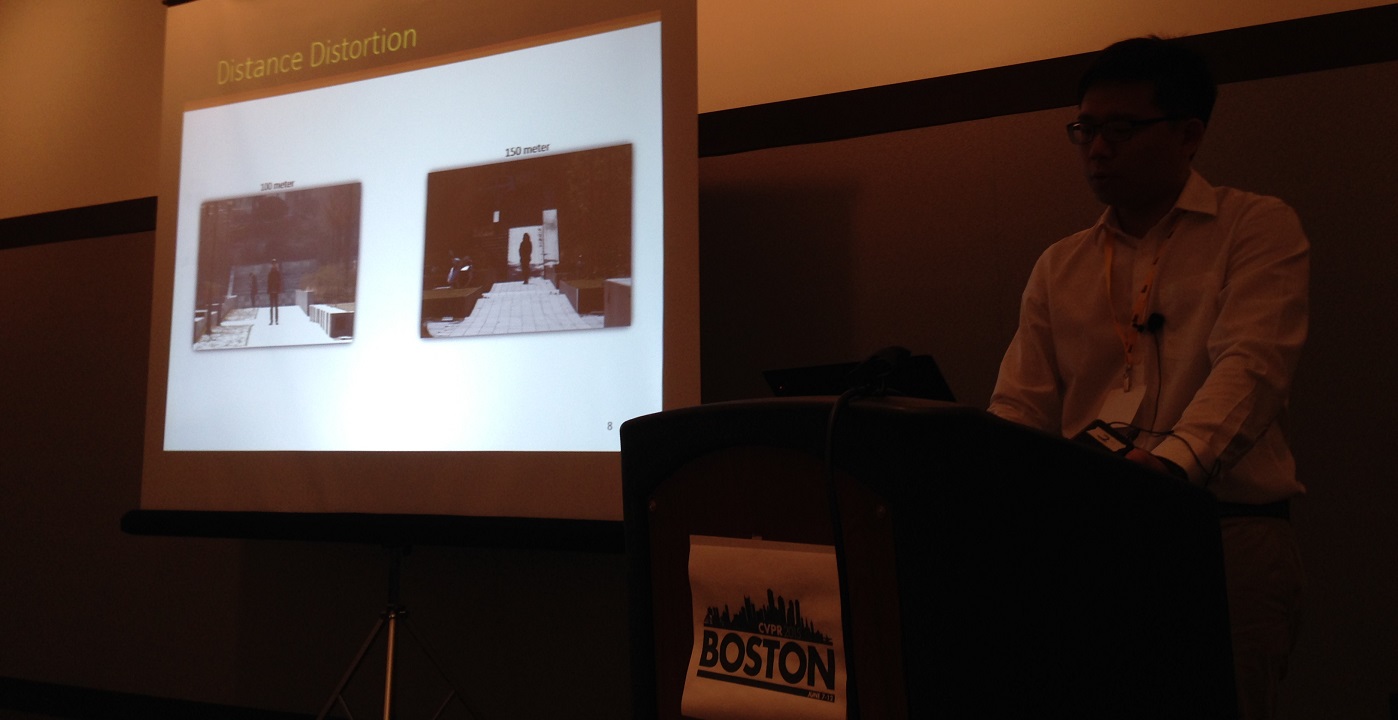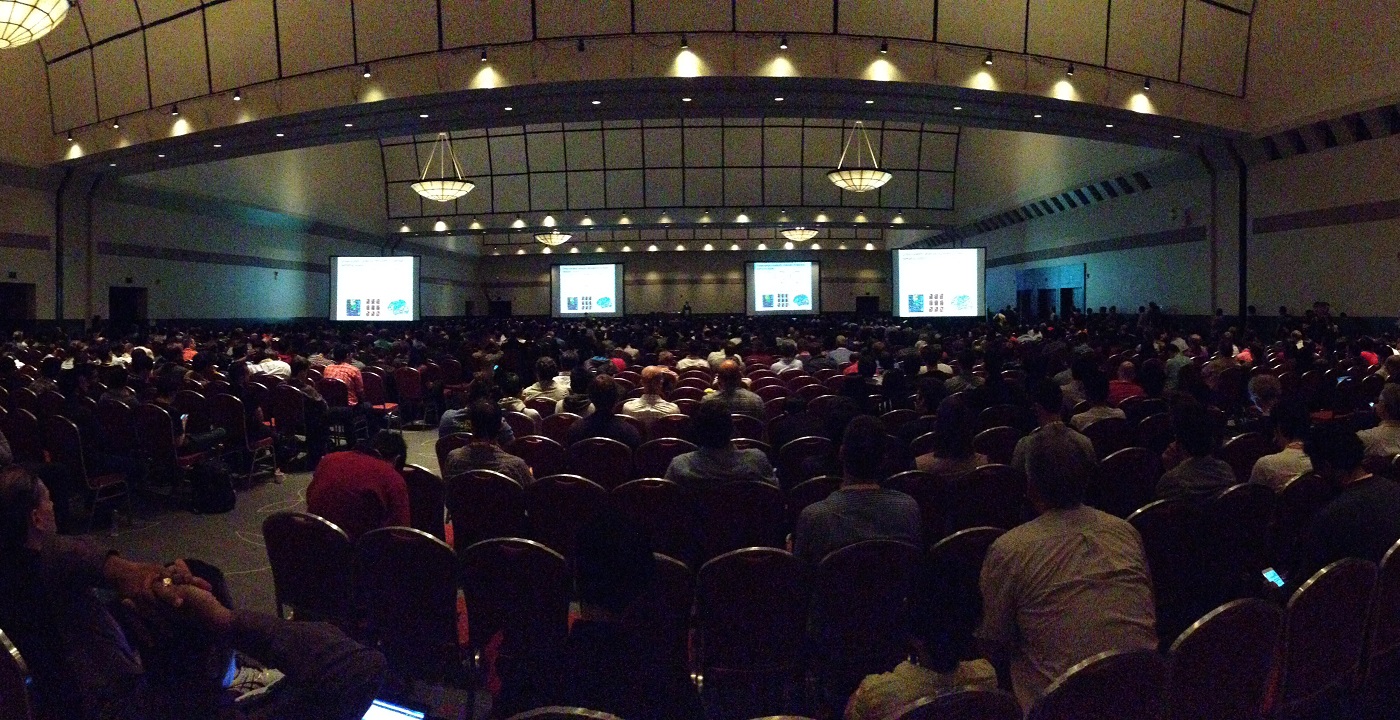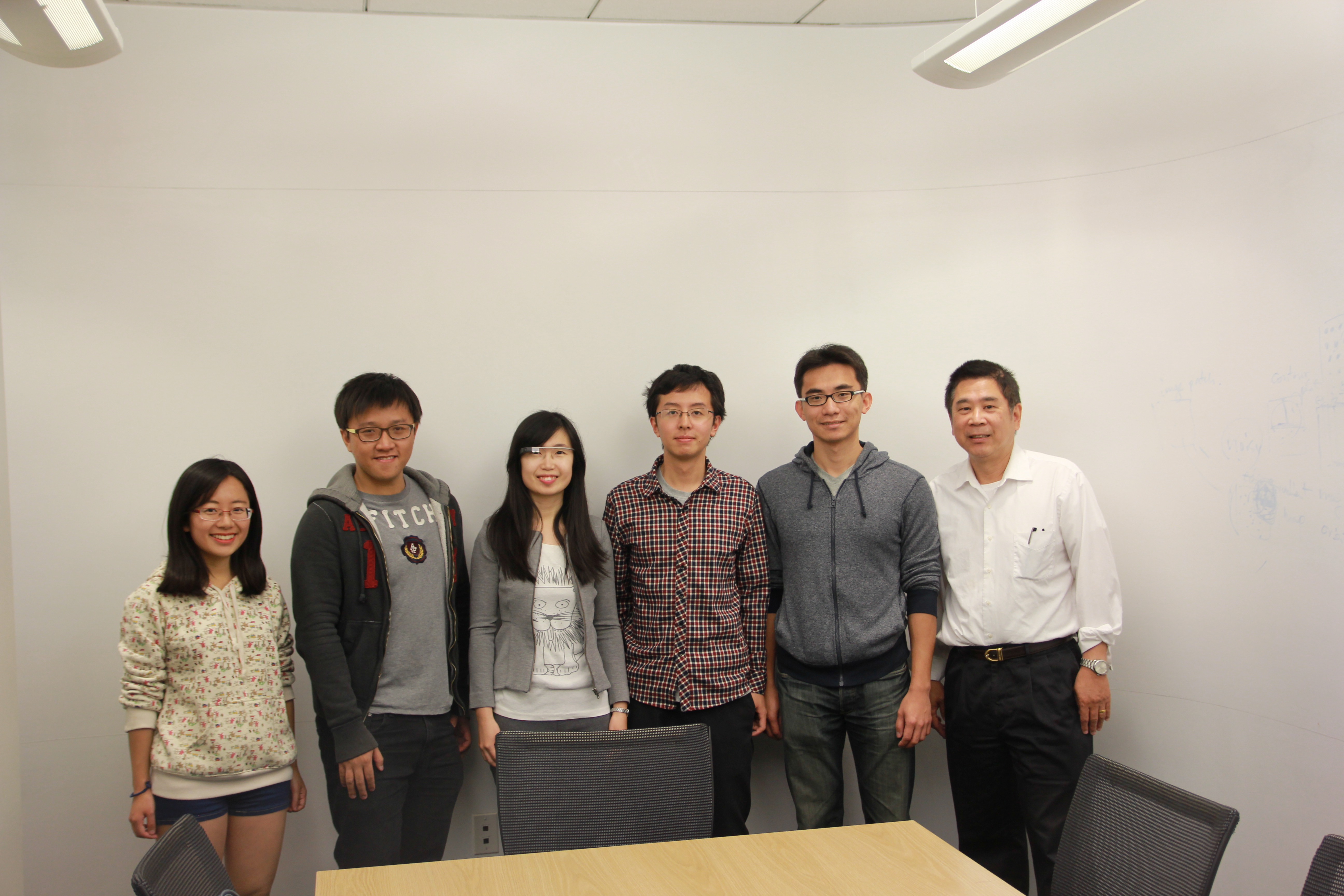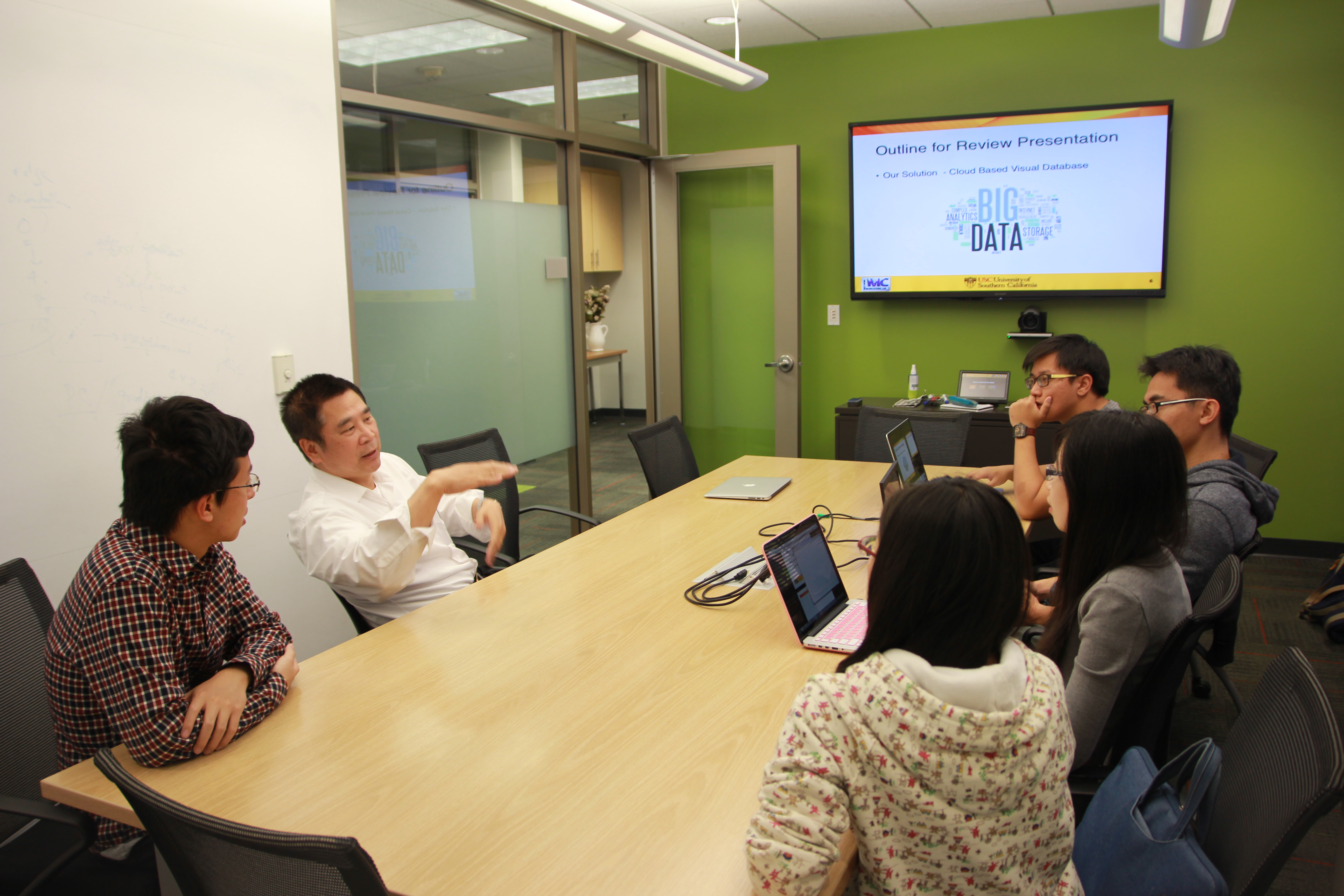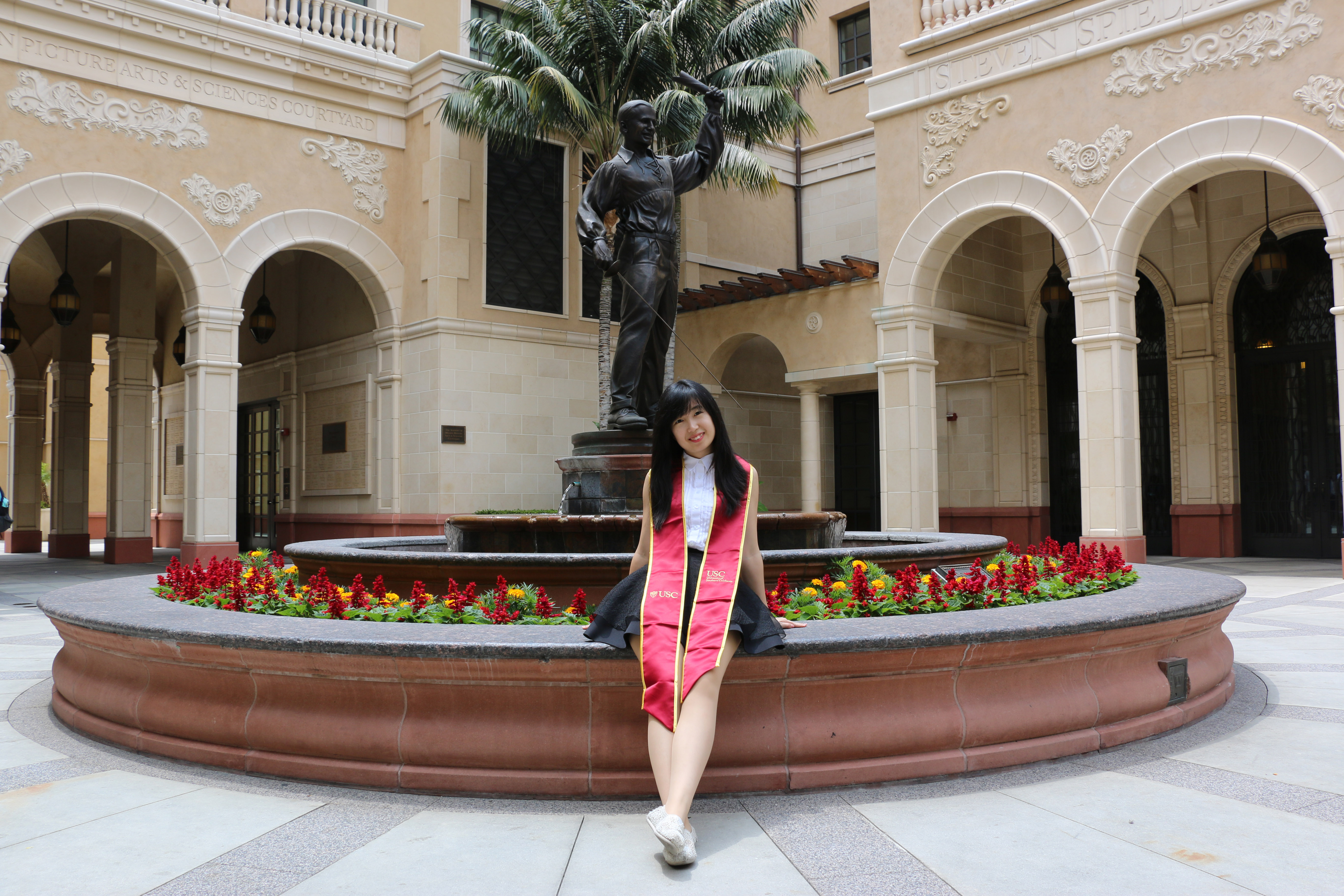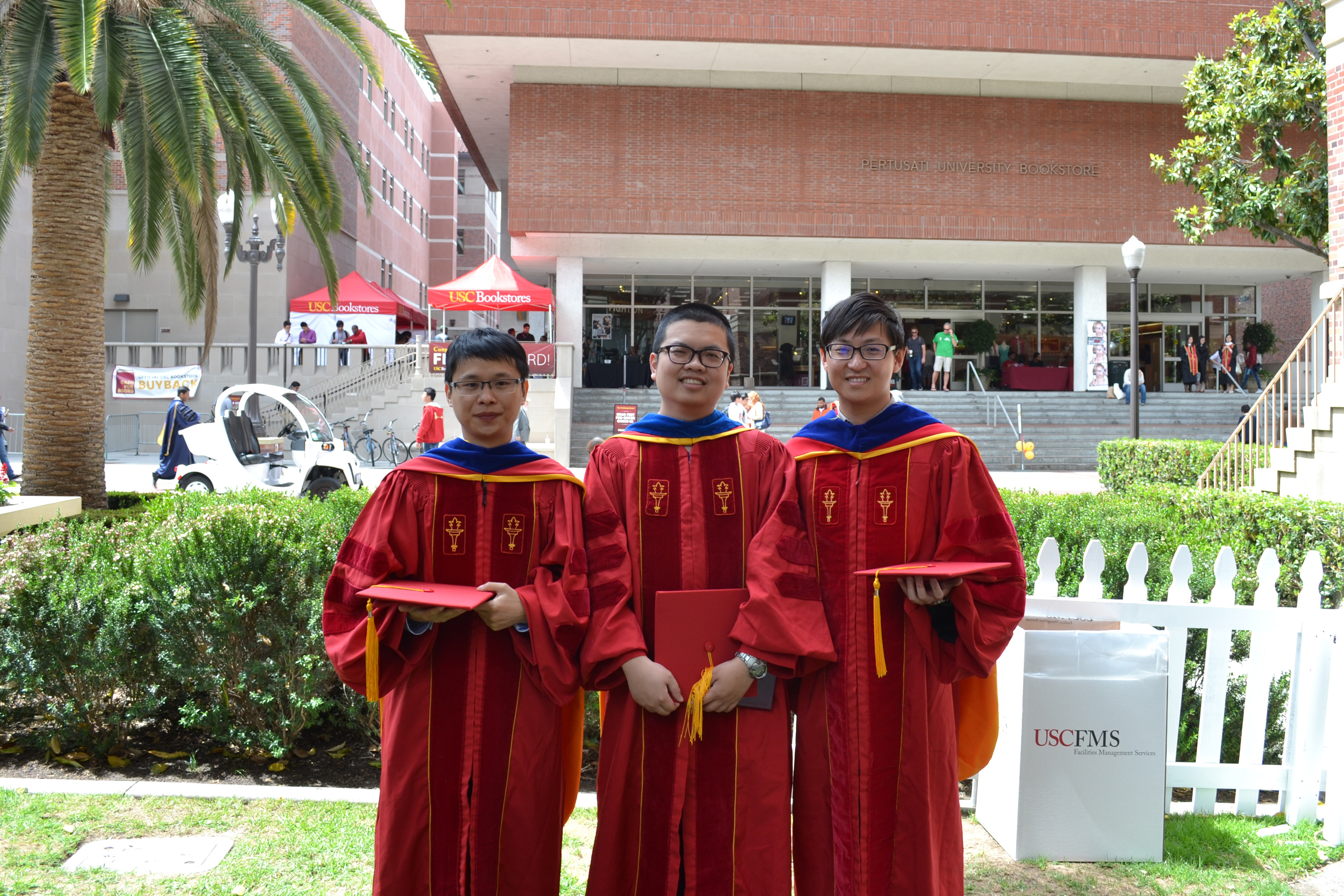MCL Offers Summer Internship Courses
This summer, Professor Kuo and his PhD students are providing MCL’s interns with 5-week summer internship courses. The courses, including image processing, web design, computer vision, computer graphic and entrepreneurship, were designed not only to improve students’ academic capability on media communication, but also to give them an edge in preparing business start-ups.
Students are required to demo their final projects by the end of next week. For the image processing class, they are required to show a face morphing video and explain related working details. For the web design class, they will introduce themselves using the website they designed. For the computer vision class, they will show how their own trained detectors work. For the computer graphic class, they are going to show their 3D model transformation video as well as explain how the codes work. Then on the last day, intern students, as well as other lab members, will present their case study results on various promising startups.
Finishing their own fantastic projects from the scratch is extremely meaningful for these interns, especially considering the fact that some of them just finished their freshman year and some are still applying for college entrance. Through these courses, they obtained not only extracurricular knowledge but a better understanding of research methods and their appliance in business world.


